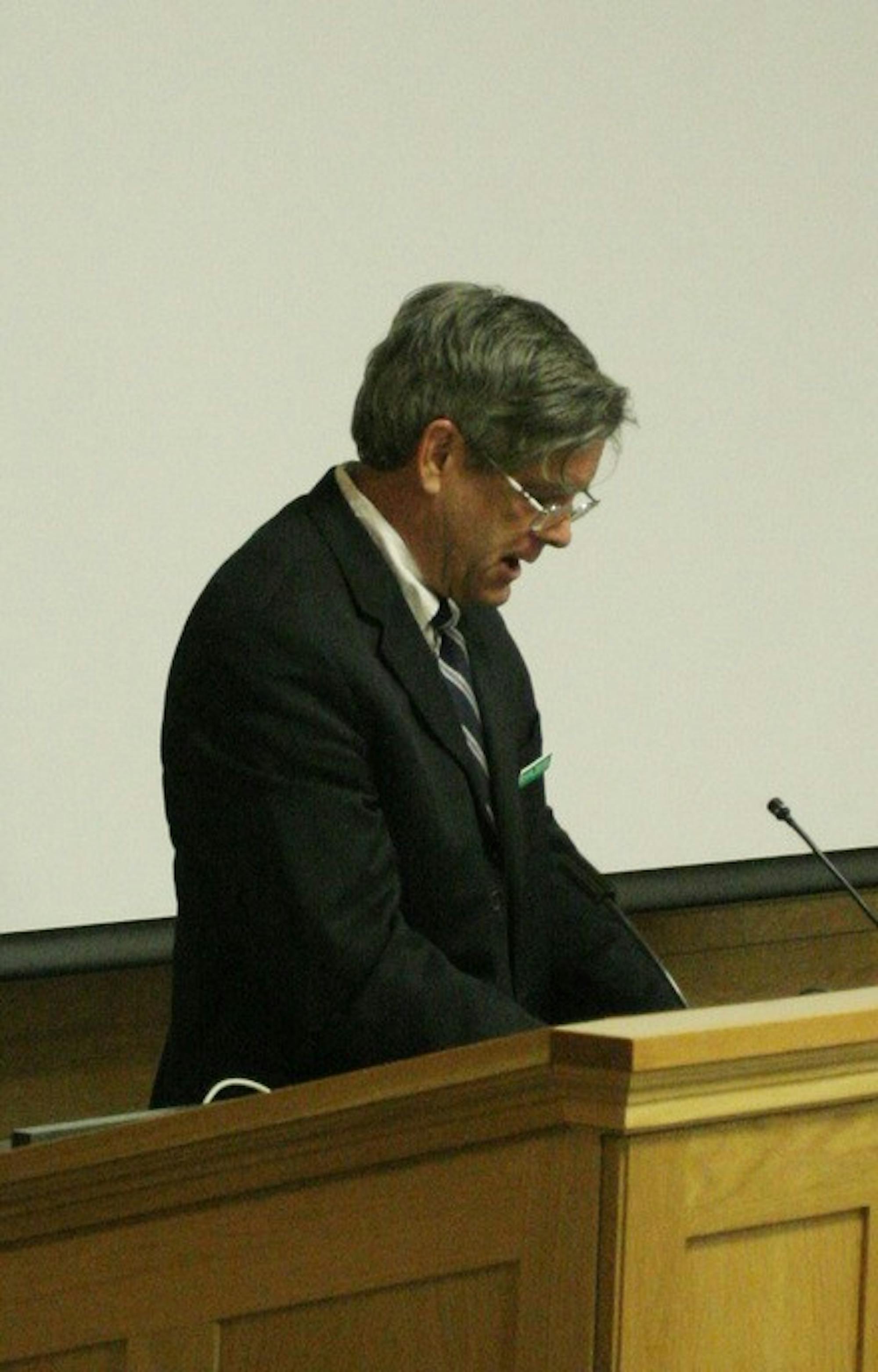The discussion, co-sponsored by the Rockefeller Center for Public Policy and the Nature Conservancy, focused on current freshwater supply issues, the future of the earth's freshwater supply, and proactive step towards freshwater resourcefulness worldwide.
"Water is the basis of life. Without water we have chemistry. With water we get biology, we get life," Postel said. "It's not a replaceable commodity."
Postel opened the lecture with statistics evidencing the global freshwater crisis.
"Since 1950 we've had a 50 percent reduction in freshwater supplies per capita worldwide," she said. "It will decrease by about another third over the next half century."
Postel expressed concern that groundwater is pumped excessively worldwide to irrigate land.
"Irrigated land gives us 40 percent of the world's food," she said. "We're using some of tomorrow's water to meet food production today."
Additionally, Postel said that biofuel production will contribute to the lack of freshwater worldwide.
"By 2050 the water demand for all biofuel production could be as large as the amount of water used for all agriculture today," she said. "The problem is we don't account for these values in our decision making."
Postel explained that, over the last half century, a dramatic increase in the number of dams in the United States has changed the nation's hydrologic environment in a short period of time.
"We've been building, on average, two large dams a day, every day, since 1950," she said. "In a nutshell, what [dams] have done is really alter the timing and the flow ... of most of these major rivers on which these dams have been built, which, in turn, has severed a whole bunch of ecological connections throughout these major watersheds."
With rivers running dry from India and China to the western United States and South Africa, Postel fears for the welfare of fish and waterfowl, wildlife habitats and biodiversity.
Postel also explained that climate change will result in an increase in floods and droughts, as well as glacial melting, further decreasing the earth's freshwater supply.
"Climate change has enormous implications for everything we've been talking about so far: irrigated agriculture, the health of the aquatic environment and the competition for water between farms, cities, industries and people and fish," she said.
Despite the earth's current water issues, Postel has not given up hope that humans can manage a healthy water supply.
"I do remain fundamentally optimistic that we can resolve these tensions," she said.
Postel proposed that the global community integrate ecological health and ecosystem services into global water management.
"Water has tremendous value left in its natural channel to do the work of nature," she said. "We're going to need to start allocating water proactively to sustain ecological health. ... [Allocating] maximizes the total value of water; it increases public welfare and unleashes the untapped potential of conservation and efficiency."
In addition, Postel explained that affordable irrigation technology can dramatically increase water productivity to fulfill food, water, and environmental needs in developing areas such as Bangladesh, India, Asia and Sub-Saharan Africa.
"It's very important to think we can achieve a water-secure world," she said.
Also joining Postel was Brian Richter, the director of the Nature Conservancy's Sustainable Waters Program.
Postel's lecture was part of a series of three discussions concerning freshwater conservation held by the Nature Conservancy, a land and water conservation organization. Kim Lutz, Director of the Connecticut River Program, and Mike Kline, Vermont State River Management Scientist, also spoke at the event.




